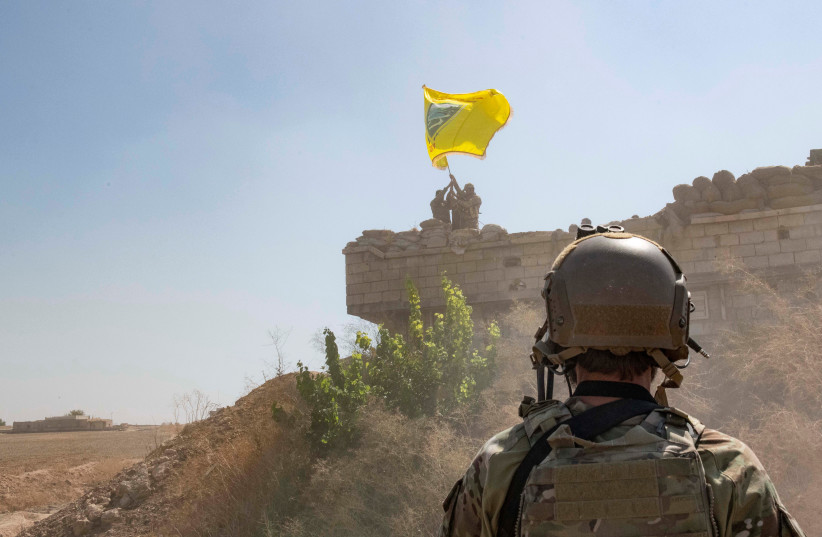US airstrikes on Iranian proxies in Syria represent an attempt by the US to determine further attacks, pro Iranian militias, have been carrying out attacks over the last several years when US personnel or contractors have been injured the US has generally responded with airstrikes.
These airstrikes come after a US contractor was killed and five US service members in what is believed to be an Iranian-backed militia attack in eastern Syria. The attack comes in the wake of the visit to eastern Syria by top US general Mark Milley.
Over the last several years, Iran has increasingly sought to target US forces in Iraq, and now increasingly in Syria. The reason around focuses on Syria is because it believes that the US commitment to Syria is weak.
The Biden administration has sought to deter US attacks by carrying out retaliatory air strikes when US personnel or contractors are harmed. This is a policy that began under the Trump administration back in 2019.

Iran's continued influence in Syria
Iranian-backed militia threats have increased in Syria in the last two years. These include drone attacks which are the weapon of choice for the Iranian-backed militias. Iran has also increasingly threatened Israel with drones since 2018 and also exported kamikaze drones to Russia.
This means that the Iranian attacks on US forces are part of a larger regional and global strategy. Iran has also sought to repair relations with Saudi Arabia and other Gulf states. Iran’s goal is to isolate US forces in Syria. US forces are in Syria to support operations against ISIS. The US presence in Syria began back in 2015 and although it is ostensibly to fight ISIS, it serves as a way to also project US influence.
US influence helps balance Iranian threats. This is why Iran wants to use these types of attacks to harass the US. Although the militias use rockets and drones and are often ineffective in their attacks, when there are casualties the US has generally responded.
Iran appears to order its militias to attack US forces every month or every other month to gauge the US response. Every year US contractors have been killed or wounded, including in August 2022 and March 2021 and also in 2019 and 2020.
The attacks these days are mostly directed at US forces in Syria. As the Syrian regime normalized ties increasingly with countries in the region, including US partners in the Gulf there may be pressure on the US in Syria and Iran may sense an opportunity. This means that Iran may also sense an opportunity to act against Israel during Ramadan, to increase tensions in Syria. Israel has opposed Iranian entrenchment in Syria but as the targeting of US forces indicate, Iran will not stop its pressure campaign and will test US responses.
